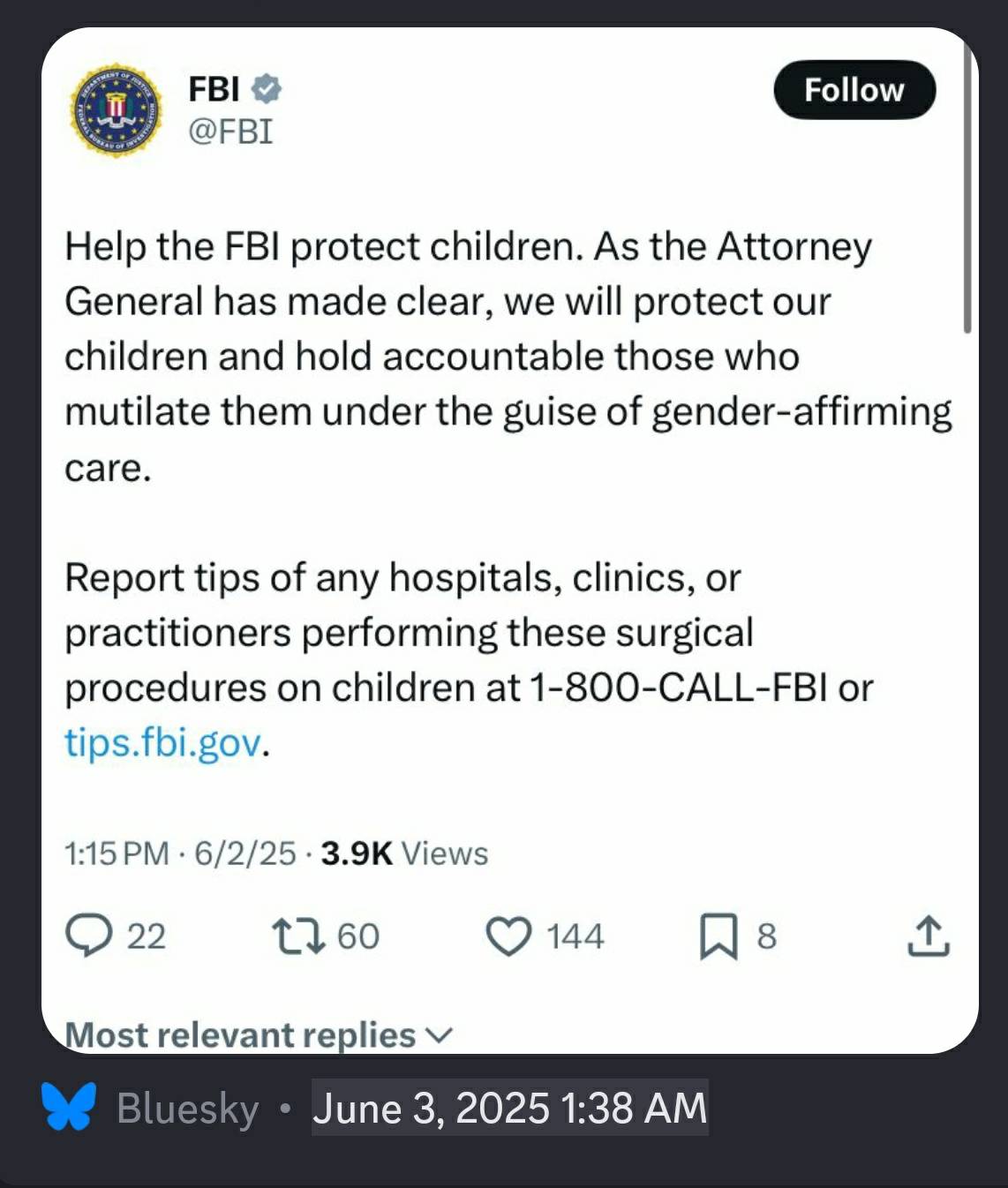this post was submitted on 03 Jun 2025
427 points (97.3% liked)
Progressive Politics
3082 readers
395 users here now
Welcome to Progressive Politics! A place for news updates and political discussion from a left perspective. Conservatives and centrists are welcome just try and keep it civil :)
(Sidebar still a work in progress post recommendations if you have them such as reading lists)
founded 2 years ago
MODERATORS
you are viewing a single comment's thread
view the rest of the comments
view the rest of the comments

This study appears to focus on breast reduction surgeries, which is considered gender-affirming care. It seems to confirm that breast reductions are overwhelmingly performed on cisgendered males regardless of age.
Probably not a high percentage, but intersex babies are routinely "altered" to conform to one gender or another with no concern to what the child may wish in the future. Sometimes without even input from the parent.
I'm actually fine with them stopping that one. Leave it to the kid to decide.
Agree, but we both know they'll turn a blind eye to this one.
I believe the 97/3% is specifically looking at breast reduction surgery. This means 97% were not trans or gender diverse children but they had the surgery. This is something no one would bat an eye at if you were a cis man with man boobs and wanted to look more masculine, but if someone who is trans or gender diverse has the same procedure then it's suddenly a huge deal.
It's a double standard
It doesn't seem to break it down quite how I'd like, but the 97% and matching 3% are specifically about breast reductions.
The things I don't understand are the 85 and 151. What are the differences between those numbers? They both seem to refer to total procedures on minors.
This first part parses to me as "Of gender-affirming surgical procedures identified, 1591 of 2664 adult surgeries (59.7%) and 82 of 85 minor child surgeries (96.4%) were chest-related procedures, respectively." However, the next sentence doesn't seem to line up with that notion...
To make this section easier to read, I replaced some words and phrases while hopefully keeping the meaning intact.
I kind of feel like this quote is referencing two different data sets, and is missing a segue. The numbers don't seem to line up with each other any way I poke at them.
I think the 85 must be a reduced fraction, but that feels weird to do in a scientific paper.